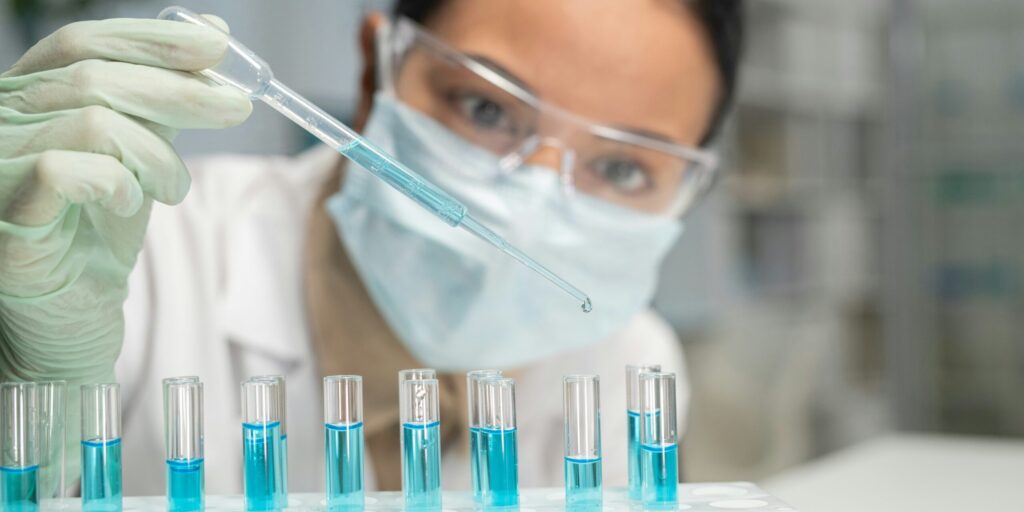On November 13, 2025, L’Oréal USA announced the recipients of its prestigious “For Women in Science” fellowships, honoring five post-doctoral women scientists for their groundbreaking research and leadership in STEM fields. The awards, now in their 22nd year in the United States, recognize exceptional female scientists who are pushing the frontiers of knowledge while actively working to inspire and support the next generation of researchers. This year’s announcement was made during a special event co-hosted by Vox Media, further emphasizing the growing role of public platforms in celebrating scientific achievement and promoting diversity in academia.
Each awardee receives a $75,000 grant to support their independent research, along with professional development opportunities designed to amplify their impact, foster mentorship, and build networks among women in science. In total, the five women recognized this year represent a range of scientific disciplines, with projects addressing pressing issues such as pulmonary arterial hypertension, circadian rhythm and fertility, sensory biology, and antibiotic resistance.
Dr. Kaveeta Kaw of Emory University was recognized for her work in biomedical engineering, particularly her development of personalized modelling systems to better understand and treat pulmonary arterial hypertension. This life-threatening condition, which involves elevated blood pressure in the arteries of the lungs, often goes undiagnosed until it becomes severe. Kaw’s research aims to bridge gaps in treatment by creating customized models of the disease that can be used to test therapies and predict patient outcomes.
Dr. Kaitlyn A. Webster of Harvard Medical School earned her award for research on the Mexican tetra fish, an unusual species that exhibits significant circadian rhythm variations. Her work investigates how disruptions in biological timing systems might affect female fertility, a field with increasing relevance in both human reproductive health and broader biological research. Webster’s findings may offer new insights into how light exposure, sleep cycles, and genetic predisposition can impact reproductive systems.
Dr. Rebecka J. Sepela, also from Harvard, is breaking ground in the field of sensory biology and animal behavior. Her research focuses on the chemical signals that influence behavior in various animal species, potentially unlocking a deeper understanding of how organisms perceive and respond to their environments. Her work has implications not only for animal science but for better understanding human sensory systems and the mechanisms of perception.
At Caltech, Dr. Georgia Squyres was honored for her pioneering efforts in microbiology, particularly her study of bacterial biofilms and antibiotic resistance in Pseudomonas aeruginosa, a pathogen that poses significant challenges in hospital settings. Biofilms are structured communities of bacteria that can be remarkably resistant to treatment. Squyres’ research explores the cellular interactions within these biofilms and could pave the way for new antimicrobial strategies that bypass current resistance pathways.
Dr. Sydney Aten of Harvard Medical School and Beth Israel Deaconess Medical Center was recognized for her investigations into how circadian rhythms influence female reproductive health. Her work focuses on the timing of hormone release and fertility cycles, seeking to determine how disruptions—whether from shift work, stress, or other environmental factors—might impair reproductive outcomes. Aten’s findings hold promise for both clinical applications and public health messaging around work-life balance and fertility planning.
Since the U.S. launch of the L’Oréal “For Women in Science” program in 2003, more than $5.3 million in grants have been awarded to over 100 promising women scientists across the country. The program, originally developed in partnership with the American Association for the Advancement of Science (AAAS), is part of a global initiative that spans over 100 countries and aims to promote gender equity in scientific fields. While women have made significant gains in STEM over recent decades, they remain underrepresented in key disciplines, especially at the post-doctoral and faculty levels. The L’Oréal awards help address these disparities by not only providing financial resources but by offering a public platform that recognizes the importance of women’s contributions to science.
The recognition of this year’s awardees underscores a broader trend in the scientific and funding communities toward fostering more inclusive research ecosystems. Funding bodies and academic institutions are increasingly prioritizing programs that elevate underrepresented voices and ensure that the future of science is shaped by diverse perspectives. The five 2025 recipients embody this shift, combining scientific excellence with advocacy, mentorship, and a commitment to opening doors for others.
In a time when science continues to face challenges ranging from climate change and public health crises to technological disruption, the need for inclusive, collaborative, and interdisciplinary research has never been greater. The L’Oréal USA “For Women in Science” Awards not only spotlight the accomplishments of remarkable women researchers but also affirm that equity and excellence are not mutually exclusive—indeed, they are deeply interconnected. For the scientific community and the public alike, these awards are a reminder that supporting women in science is essential to the progress and wellbeing of society as a whole.


